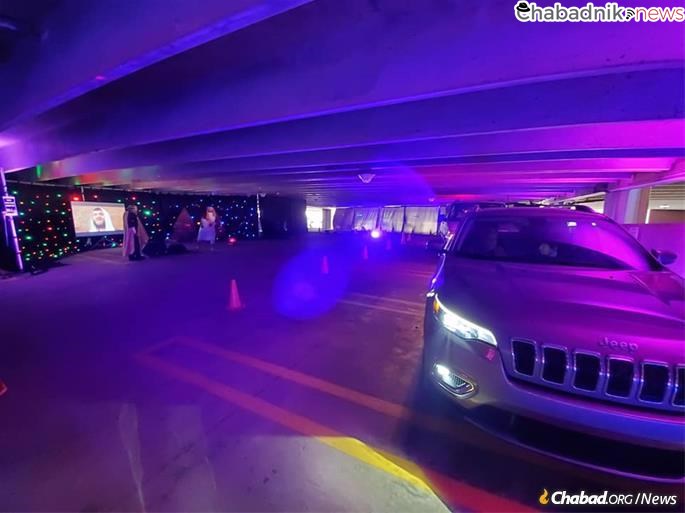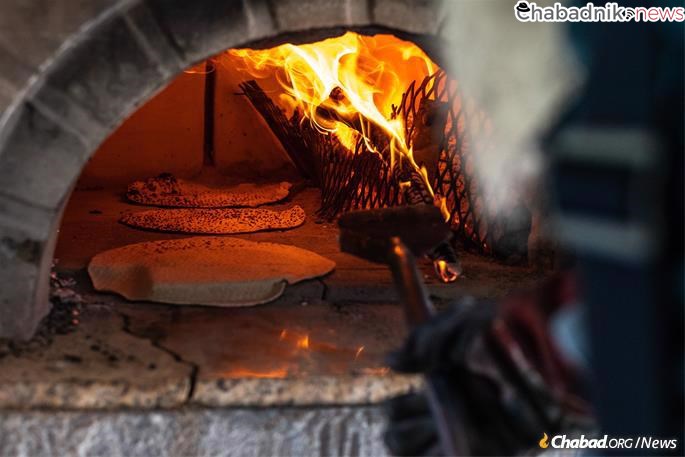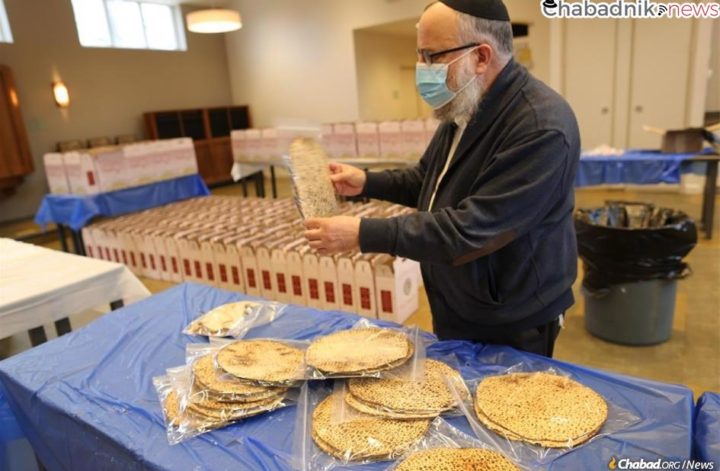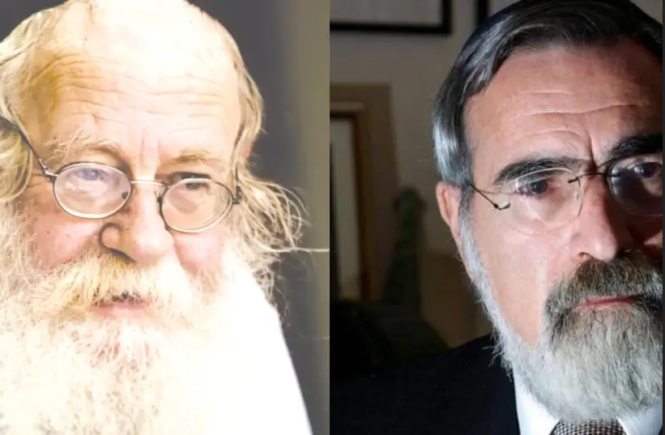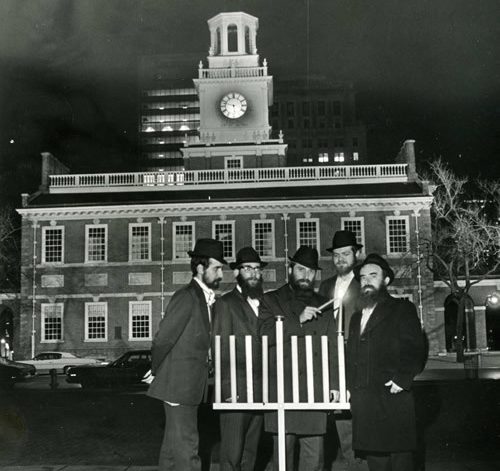Amid continued restrictions and rising vaccinations, Chabad-Lubavitch brings Passover to one and all
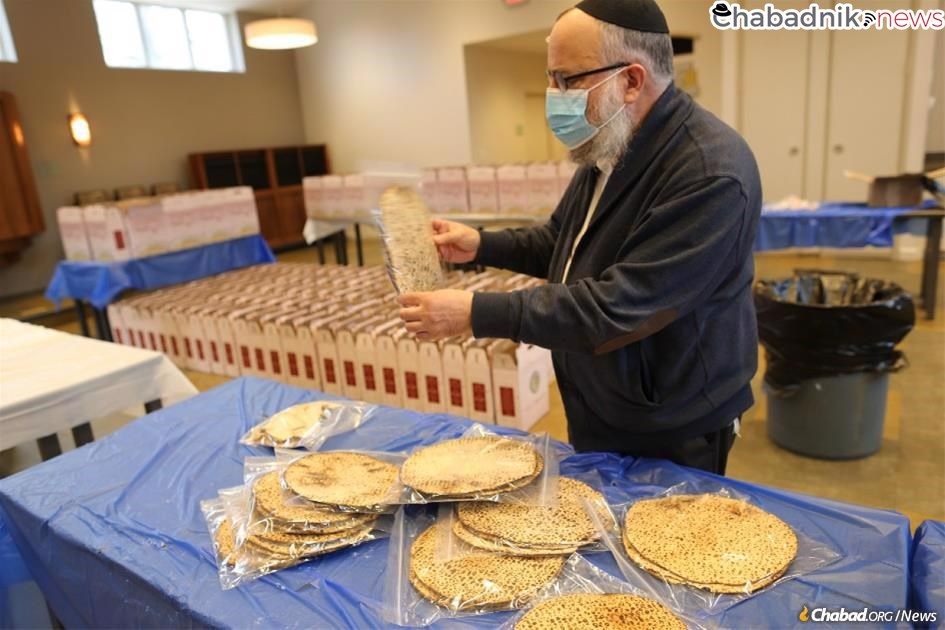
Passover descended last year upon a world under lockdown. For the first time in memory, individuals and families were forced to “Seder-in-place,” foregoing extended family gatherings for the safety of home. This isolation meant that more Jewish households worldwide hosted their own Passover than ever before, many led by individuals who had never done so before.
A year later, as the global coronavirus pandemic appears to be slowly receding, a light appears at the end of the tunnel. Vaccination rates in some countries are skyrocketing, allowing many individuals who have not left home or spent time with people outside of their immediate surroundings in more than a year the chance to once again celebrate with family and friends. At the same time, many restrictions remain in place, the threat of infection remains real, and not everyone feels safe enough to venture out just yet.
For the last months, the Chabad-Lubavitch movement worldwide has been working assiduously to bring Passover to individuals and communities in either category, and everyone in between. Chabad’s efforts this year range from “Seder-to-Go” kits to contactless shmurah matzah delivery, outdoor or distanced public Passover Seders to the season’s best-selling “How-to” Haggadah, as well as new innovations such as drive-through Passover experiences.
According to the Pew Research Center, Passover is the most observed Jewish holiday in the United States with some 70 percent of its Jewish population of 5.7 million usually participating in a Seder. For the past seven decades, Chabad has been on the forefront of making Passover accessible to Jews wherever they may be, and whatever they might need.
This global Passover campaign was launched in the early 1950s by the Rebbe—Rabbi Menachem M. Schneerson, of righteous memory—who stressed the importance of making sure that Jewish communities and individuals around the world had everything they needed for Passover. The Rebbe’s call to action included a special emphasis on distribution of shmurah matzah. This year by the time Passover dawns on Saturday evening, March 27 (running through April 4), Chabad will have distributed approximately 4 million handmade shmurah matzah for people to enjoy at a communal Seder or at home.
“We have brought shmurah matzah to 1,000 Jewish households in the area,” says Rabbi Bentzy Stolik, co-director with his wife, Devorah, of Chabad of Olney, Md. A team of volunteers has spent the past month packing and delivering the handmade shmurah matzah from door to door in the suburban Maryland town. “It’s really a community-wide effort here, with volunteers of all ages making it happen.”
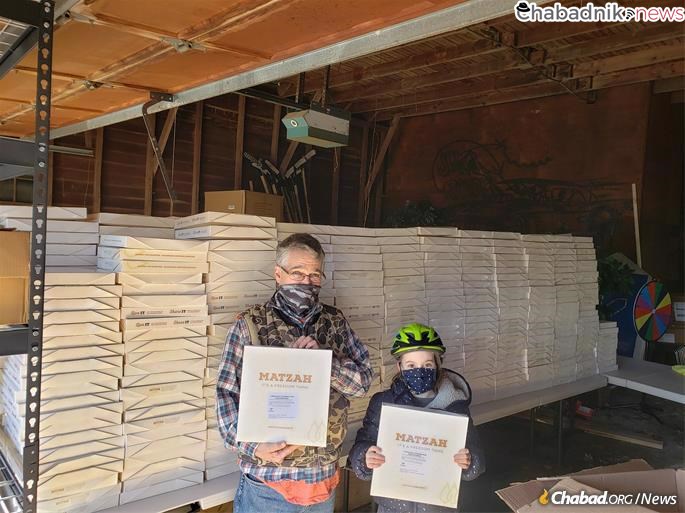
The effort has not gone unnoticed by local Jewish community members, neither the volunteers nor recipients of the matzah.
“You never really know who is doing the mitzvah, you or them? You just feel so happy, so appreciated,” says Starr Zarin, a member of the Chabad of Olney community who has been volunteering to help distribute matzah, as well as other community projects, for the last four years. “You come to the door and people are so honest and thankful: ‘Oh, this is the real stuff!’ Matzah is just something that we all have in common with each other; we all eat matzah. So it’s never been anything but thanks, and it’s such a beautiful thing.”
Last year’s Passover snuck up on people, many of whom until the last moment planned on spending the holiday surrounded by family and friends. Forced to lead a Seder for the first time, they looked for resources online. Chabad.org’s team worked around the clock to create Chabad.org/CoronaPassover, a site chock filled with guides, tips, recipes and anything else one needs to celebrate the Festival of Freedom at home, which remains as relevant and helpful this year as it did a year ago. Passover.org continues to be the world’s most popular Passover website, offering online visitors from 194 countries everything they need to know about the holiday.
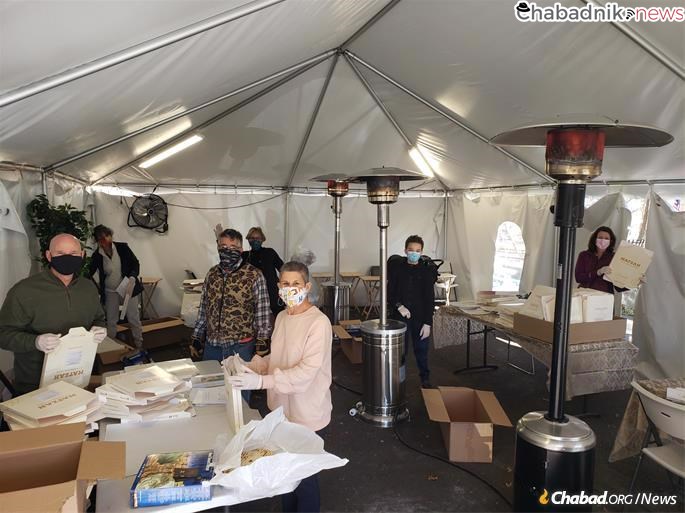
Especially popular this year is Chabad.org’s brand-new Haggadah, available to download for free. Born in the depths of lockdowns that forced many to conduct their own Seders for the first time, Chabad.org created a beautiful Haggadah—whose English text is designed to be both faithful to the Hebrew original and eminently readable—providing clear reading cues and instructive notes to help novice Seder leaders perform their new roles like pros.
The Haggadah has already been downloaded more than 100,000 times, and the print edition has broken the coveted top 100 best-selling books across all categories on Amazon and has quickly become the most popular Jewish book on the site.
“The response has been overwhelming,” says Rabbi Motti Seligson, associate director of Chabad.org, who spearheaded the Haggadah project. “It’s clear that people got comfortable with the idea of leading a Seder themselves last year, and now they’re searching for ways to up their game. This Haggadah was designed with that person in mind.”
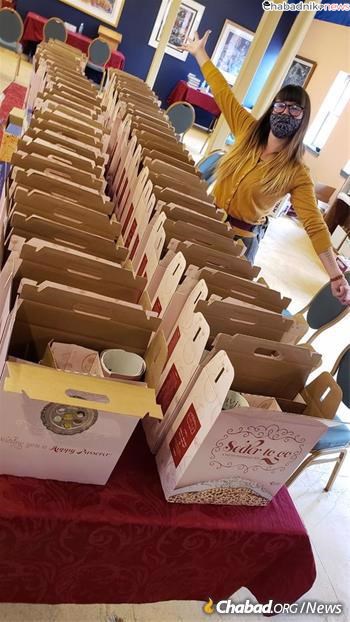
Unique Passover Experiences
At Chabad of Northwest Bergen County in Franklin Lakes, N.J., co-directed by Rabbi Chanoch and Mimi Kaplan, this year’s Passover season has meant a combination of approaches. A highlight has been the Ultimate Passover Experience, which leads participants through the story of the Exodus. Each station has an oversize image relating to the narration, with costumed actors bringing the story to life. The climax of the experience is the “Exit from Egypt,” after which participants bake matzah at a model matzah bakery and go on to walk through the splitting of the sea.
A similar Passover experience was put on in Columbus, Ohio, where more than 250 cars with families inside drove through an interactive Passover carnival complete with a pharoah on stilts, carnival games and model matzah bakery. Similarly, in suburban Detroit, Friendship Circle and Chabad centers in West Bloomfield, Bloomfield Hills, Royal Oak, Bingham Farms and Troy put on “Freedom,” a scripted re-enactment of the Passover story taking participants through an indoor parking garage with live actors, experiencing the plagues and eventual freedom.
Back in New Jersey, Rabbi Kaplan explains that this past year has pushed Chabad of NW Bergen County to build out more advanced and creative programming for the community. They’ve made use of their center’s large outdoor space, hosting more than 100 events, classes and programs over the last year.
“It’s an immersive experience,” he says of the Passover journey, which more than 300 people enjoyed. “Voice actors have created this wonderful narration with sound effects and cultural references. It’s all at their own pace, so in that respect, while we’ve created an incredible format and platform for them to have that experience, I think it engages them on a whole different level to connect with the story.”
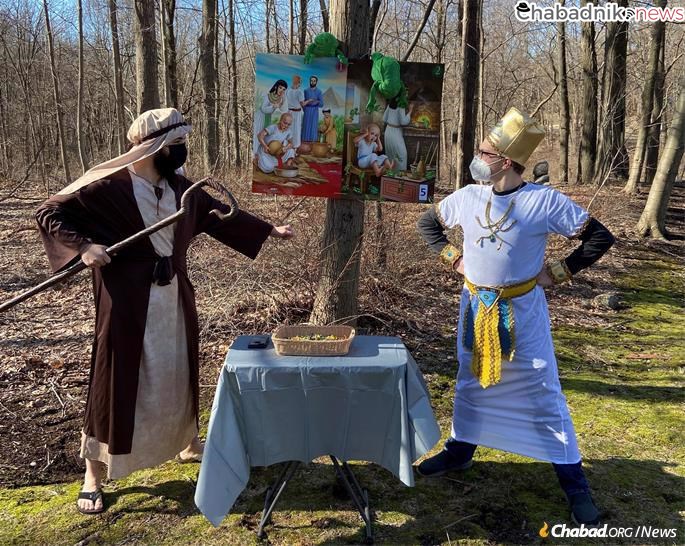
“This reinforced the story of Passover for our grandchildren in such a moving and positive way,” says Andrew Schechter, who attended together with his wife, daughter and son-in-law, and two grandchildren, ages 6 and 4. “We would have had our Seder anyway, but this was a real-life experience for the children, which was so especially important during this year of Covid. They felt the sand under their feet, they saw the sea splitting, and now they’re both so excited for Passover. I’m already negotiating with my grandson over the afikomen. We wouldn’t have had that if not for Chabad.”
Beyond the educational aspect of their work, the Kaplans have distributed hundreds of Seder-to-Go kits and pounds of matzah for those making their own Passover Seder at home. At the same time, they will be hosting a public Seder for those who have been vaccinated, as well as holding services.
“I think the past few weeks and months have taken a new dimension in the Covid narrative,” observes the rabbi. “What’s fascinating is that Passover is all about leaving behind your old habits, and the limitations both imposed from the outside and within as well.”
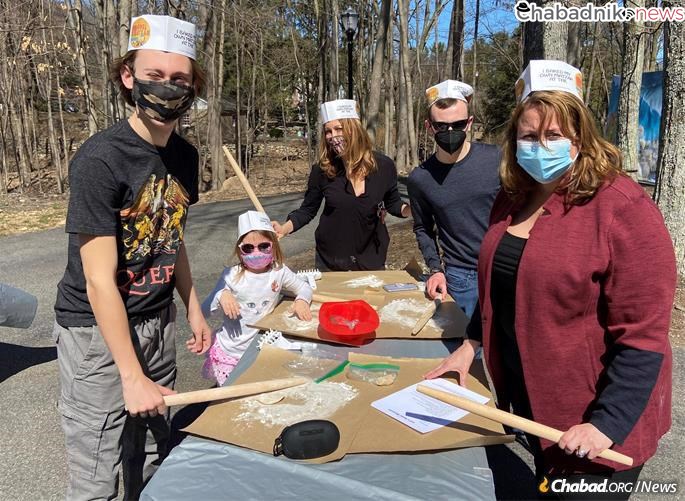
That means re-experiencing the exodus from Egypt on some level firsthand—emerging from the literal and figurative quarantine of the body and soul, he says.
“I think celebrating Passover at this time, which is in the middle of people receiving vaccines, is a great opportunity to open people’s eyes to the potential this holiday gifts us,” says Kaplan. “We can begin shedding the emotional weight and baggage of the past year.”
In a 1977 pre-Passover letter addressed to the Jewish people as a whole, the Rebbe explained that the holiday of Passover marks the very birth of the Jewish people as a nation. While this took place against all odds more than 3,000 years ago, the story holds a continuous lesson for today.
“ … [D]espite the extraordinary difficulties, the Jewish people succeeded to make the radical transition from abject slavery to sublime freedom,” the Rebbe noted. The path to this redemption began in Egypt, when the Jewish people determinedly carried out G‑d’s commandment to offer the Pesach sacrifice and renounce the idolatry of their Egyptian surroundings.
“ … The birth of the Jewish nation was coupled with the highest degree of liberation and independence—while still in Egypt—both physically and spiritually,” the Rebbe explained.
It is this story of determination that the Jewish people—whether at home alone or with family, socially-distanced or vaccinated—will relive at the Passover Seder. The promise that amid darkness and uncertainty, G‑d will fulfill the words of the prophet: “As in the days of your exodus from Egypt, I will show you wonders.”
With additional reporting by Rochel Horowitz
